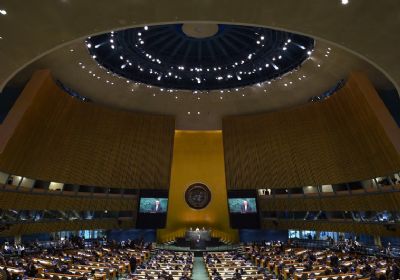On December 23, 2016, the UN General Assembly approved spending $138,700 to create a "database" of all companies that conduct business - directly or indirectly - relating to Israeli "settlements" in Arab-claimed territories. The idea of a boycott, divestment and sanctions (BDS) blacklist came from a March 2016 resolution of the UN Human Rights Council. According to UN documentation, the $138,700 will be used "to pay for one staff member to create the database over a period of 8 months and present a report" to the Human Rights Council in March 2017. In other words, the December authorization backdated approval of an expenditure for an operation already underway.
When the General Assembly's Budget Committee met to approve the UN budget, Israel proposed to delete approval specifically for funding the blacklist.The Committee rejected the Israeli amendment 6 in favor (Australia, Canada, Guatemala Israel, Palau and the United States), 151 against, with 6 abstentions (Cameroon, Côte d'Ivoire, Central African Republic, Georgia, Honduras and Ghana).
After Israel lost the vote on funding the BDS item, it declared it was "disassociating" from the General Assembly's subsequent approval of the UN budget as a whole. Despite the U.S. voting against funding the blacklist initially, it voted in favor of the UN budget, and made no mention of any problem funding BDS.
December 23, 2016
UN Approves $138,700 for Database Blacklisting Businesses With Ties to Israel
Date
December 23, 2016
Title
Fifth Committee Vote on Israeli Proposed Oral Amendment to Resolution on Programme Budget Appropriations for 2016-2017 Biennium,
UN Meeting Coverage
Original Source
Note
Israel's oral amendment was rejected by a vote of 6 in favor (Australia, Canada, Guatemala Israel, Palau and the United States), 151 against, with 6 abstentions (Cameroon, Côte d'Ivoire, Central African Republic, Georgia, Honduras and Ghana)

